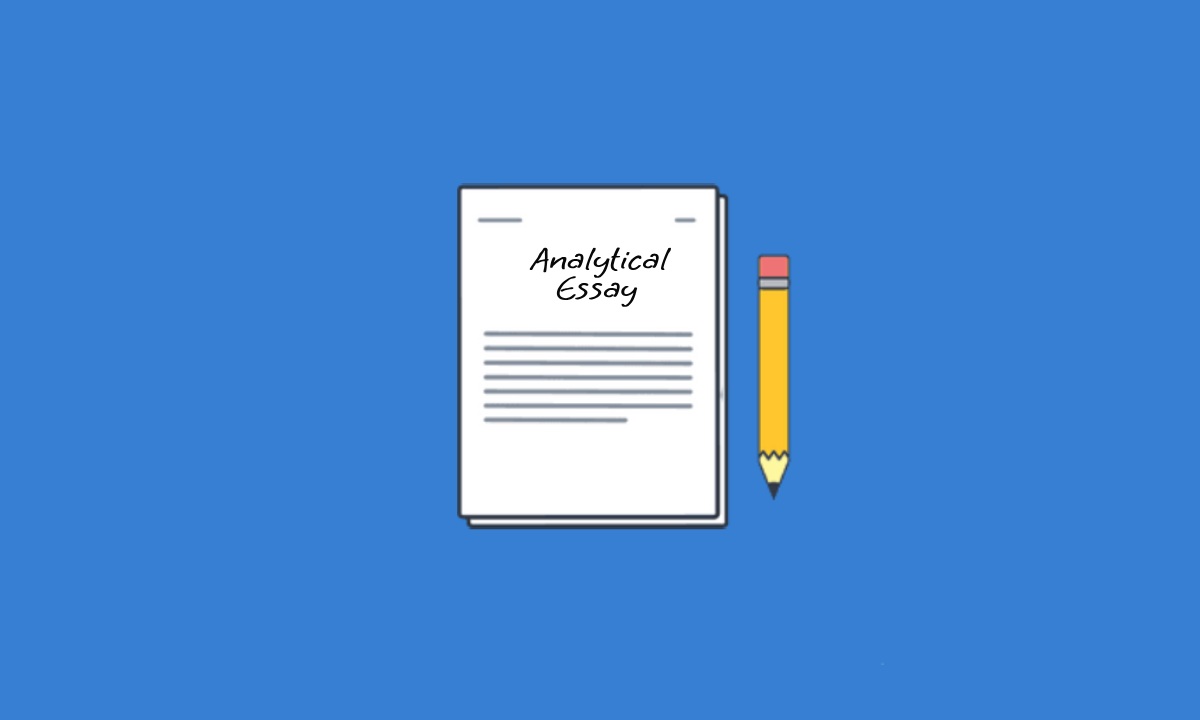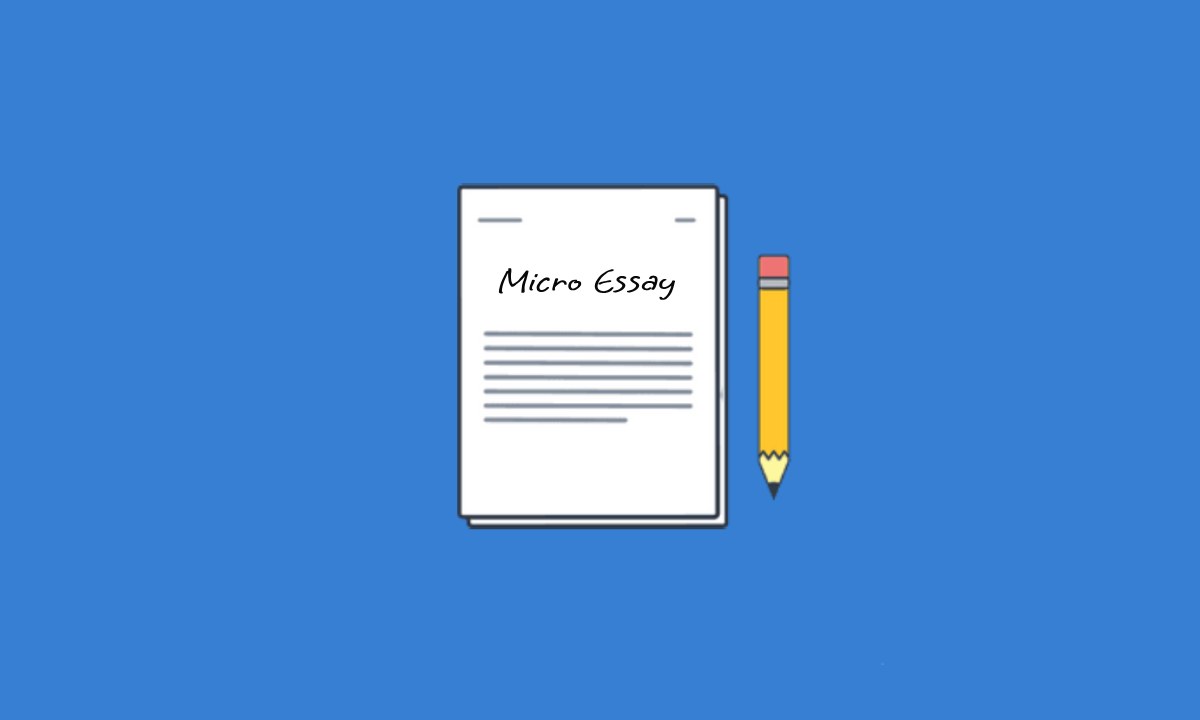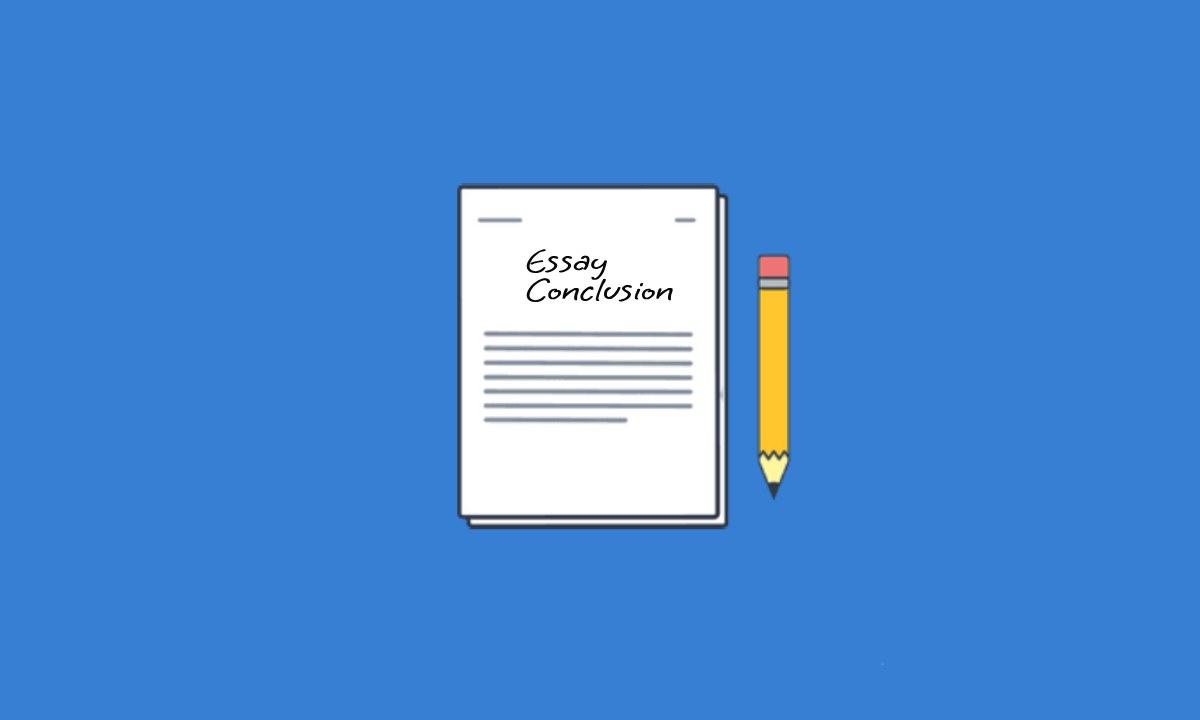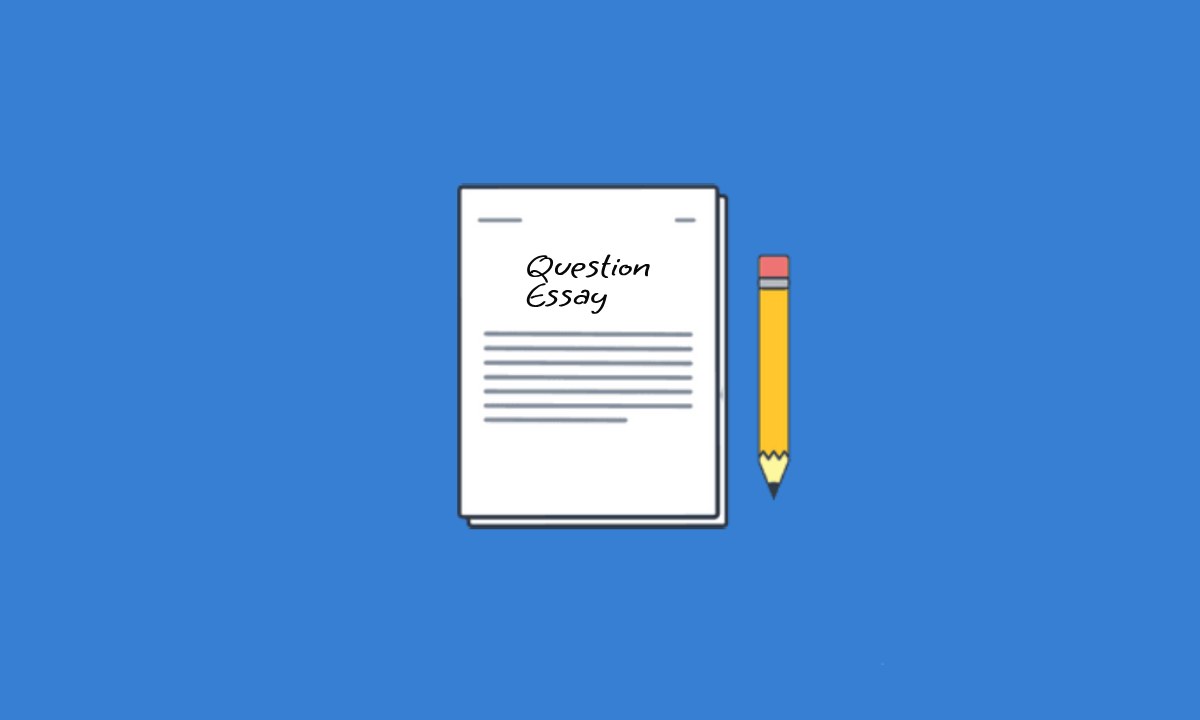What is Analytical Essay?
An analytical essay is a type of writing that involves breaking down and examining a particular subject, such as a piece of literature, a movie, an event, or a concept, in detail. The goal of this essay is not merely to summarize the subject but to analyze and interpret it by focusing on its essential elements, such as themes, characters, arguments, or structure.
Analytical Essay Types:
Analytical essays come in several types, each designed to analyze different kinds of material or to approach analysis from a unique angle. Below are some common types of analytical essays:
1. Literary Analysis Essay
A literary analysis essay focuses on analyzing a specific piece of literature, such as a novel, poem, play, or short story. The goal is to break down elements of the work—such as character development, themes, symbolism, setting, or plot—and examine how these aspects contribute to the overall meaning or message of the text. For example, you might explore how symbolism in a novel reflects the protagonist’s internal struggle or how a poem’s structure enhances its emotional impact.
2. Rhetorical Analysis Essay
In a rhetorical analysis essay, the focus is on analyzing how an author or speaker uses rhetoric to persuade or influence an audience. This involves examining the use of ethos (credibility), pathos (emotional appeal), and logos (logical reasoning) within speeches, advertisements, or other forms of communication. For instance, you might analyze a famous speech, identifying how the speaker uses persuasive techniques to build an argument and appeal to the audience’s emotions.
3. Character Analysis Essay
A character analysis essay focuses on one or more characters in a literary work, film, or other narrative form. The objective is to analyze the character’s personality, motivations, relationships, and growth throughout the story. This type of essay often examines how the character’s traits influence their actions and the overall plot, as well as how they contribute to the themes of the work. For example, you might write a character analysis of Hamlet, exploring how his indecision and inner conflict affect his downfall.
4. Process Analysis Essay
A process analysis essay examines and explains how something is done or how something works, often step by step. This type of essay is less about forming an argument and more about providing a detailed explanation of a process. The analysis might cover everything from a scientific method to a cooking recipe, or how an organization runs. For example, you could analyze the steps involved in conducting an experiment or creating a successful business plan.
5. Cause and Effect Analysis Essay
This type of essay examines the causes of a particular event or phenomenon and its effects. In a cause-and-effect analysis, you explore the relationship between variables, looking at how one event leads to another. This type of essay is often used to understand social, historical, or scientific phenomena. For example, you could analyze the causes of climate change and its potential impact on global ecosystems, or explore how technological advancements have influenced modern education.
6. Comparative Analysis Essay
A comparative analysis essay compares two or more subjects, ideas, or texts, highlighting their similarities and differences. The goal is to provide an in-depth examination that allows for a greater understanding of the subjects. Comparative essays can be applied to literature, historical events, theories, or other forms of analysis. For instance, you might compare two novels, analyzing how each explores themes of identity or freedom.
7. Critical Analysis Essay
A critical analysis essay evaluates a piece of work, idea, or issue in a detailed and objective manner. The goal is to assess the strengths and weaknesses of the material being analyzed. This type of essay requires the writer to engage with the work on a deeper level, offering insights beyond surface-level observations. For example, you could write a critical analysis of a film, discussing its direction, cinematography, and thematic elements while also offering your own perspective on its effectiveness.
8. Poetry Analysis Essay
A poetry analysis essay focuses specifically on dissecting a poem’s structure, form, language, and meaning. In this type of essay, the writer explores how the poet uses literary devices—such as meter, rhyme, imagery, and figurative language—to convey emotion or thematic depth. The essay might also explore how the poem fits within a particular literary movement or how it reflects the poet’s historical context.
Analytical Essay Format:
An analytical essay format typically follows a structured outline to present a clear argument and analysis. Here’s a common format:
1. Introduction
Hook: A compelling opening to engage the reader (quote, fact, question).
Background Information: Brief context about the text, issue, or topic being analyzed.
Thesis Statement: A clear and concise statement that outlines the main argument or point of analysis.
2. Body Paragraphs (usually 3-5 paragraphs)
Each paragraph should focus on a single point that supports the thesis.
Topic Sentence: Introduces the main idea of the paragraph.
Evidence: Provide quotes, data, or examples from the text or research to support the claim.
Analysis: Explain how the evidence supports your argument, providing critical insights or interpretation.
Transition: Smoothly link to the next paragraph.
3. Counterargument and Refutation (Optional)
Counterargument: Present a viewpoint that opposes your thesis.
Refutation: Disprove or explain why the counterargument is less valid or relevant to your thesis.
4. Conclusion
Restate Thesis: Summarize the thesis in different words.
Summarize Key Points: Recap the main points of the essay.
Closing Statement: End with a final thought or call to action that leaves an impact.
How to Write Analytical Essay?
Writing an analytical essay involves breaking down a subject into its components, examining these parts, and presenting your interpretation or analysis. Here’s a step-by-step guide on how to write an analytical essay:
1. Understand the Assignment
Before starting, carefully read the essay prompt to ensure you understand what is being asked. Identify the subject or text you need to analyze, and pay attention to any specific questions or instructions provided. Determine the purpose of the analysis—whether it’s to interpret a literary work, examine a historical event, or assess the effectiveness of an argument.
2. Choose a Topic
If the topic isn’t provided, select a subject or text that you find interesting and is suitable for analysis. Make sure your topic is narrow enough to explore in depth but broad enough to find sufficient evidence. For example, if analyzing a novel, you might focus on a specific character, theme, or literary device.
3. Develop a Thesis Statement
The thesis statement is the central argument of your essay. It should clearly state what you are analyzing and what conclusion you have reached about the subject. Your thesis should be specific and arguable, meaning it should present a claim that can be supported with evidence. For example, instead of saying “Shakespeare uses symbolism,” a more effective thesis would be, “Shakespeare uses the symbol of blood in Macbeth to represent guilt and the characters’ psychological turmoil.”
4. Gather Evidence
Once you have a thesis, collect relevant evidence that supports your analysis. Depending on the type of essay, this could include quotes from a text, historical facts, research findings, or examples. Make sure to gather enough evidence to back up your claims and provide a deep analysis. When using quotes or data, be sure to explain how it relates to your thesis.
5. Create an Outline
An outline helps organize your thoughts and structure your essay logically. A typical analytical essay follows this structure:
- Introduction: Introduce the subject and provide your thesis statement.
- Body Paragraphs: Each paragraph should focus on a specific aspect of your analysis and provide evidence to support it.
- Conclusion: Summarize your analysis and restate your thesis.
6. Write the Introduction
Begin your essay with an engaging hook that grabs the reader’s attention. This can be a quote, a rhetorical question, or an interesting fact related to your topic. After the hook, provide some background information about the subject, helping the reader understand the context. Conclude the introduction with your thesis statement, which sets the direction for the entire essay.
7. Write the Body Paragraphs
Each body paragraph should focus on a specific point that supports your thesis. Start each paragraph with a topic sentence that introduces the main idea of the paragraph. Follow it with evidence such as quotes, data, or examples, and then analyze how that evidence supports your argument. Be sure to explain the significance of the evidence and how it connects to your thesis. End each paragraph with a transition that leads to the next point.
8. Address Counterarguments
If applicable, consider including a paragraph that addresses a counterargument or an alternative perspective. Present this viewpoint and then refute it with evidence, showing why your thesis is still valid. This adds depth to your analysis and demonstrates critical thinking.
9. Write the Conclusion
In the conclusion, restate your thesis in a new way to reflect the analysis you’ve presented. Summarize the key points you made in the body paragraphs, and explain how they collectively support your thesis. End with a strong closing statement that might reflect on the broader implications of your analysis or pose a final thought-provoking question.
10. Revise and Edit
After completing your first draft, take time to revise and improve it. Look for any gaps in your argument or areas where your analysis could be clearer. Make sure each paragraph transitions smoothly, and check for clarity in your thesis and evidence. Finally, proofread the essay for grammatical, spelling, and punctuation errors.
Analytical Essay Topics:
Below are topic ideas for different types of analytical essays:
1. Literary Analysis Essay Topics
- Analyze the theme of power and corruption in Animal Farm by George Orwell.
- Explore how the setting in Wuthering Heights influences the characters’ behavior and development.
- Analyze the use of symbolism in F. Scott Fitzgerald’s The Great Gatsby.
- Examine how Harper Lee portrays racial injustice in To Kill a Mockingbird.
- Analyze the portrayal of ambition in William Shakespeare’s Macbeth.
2. Rhetorical Analysis Essay Topics
- Analyze Martin Luther King Jr.’s use of pathos in his “I Have a Dream” speech.
- Explore the rhetorical strategies used in John F. Kennedy’s inaugural address.
- Analyze how ethos, pathos, and logos are used in a popular commercial or advertisement.
- Examine how Malala Yousafzai uses rhetoric in her United Nations speech.
- Analyze the persuasive techniques in a TED Talk of your choice.
3. Character Analysis Essay Topics
- Analyze the character of Elizabeth Bennet in Jane Austen’s Pride and Prejudice.
- Explore the character transformation of Walter White in Breaking Bad.
- Analyze the tragic flaw of Hamlet in Shakespeare’s Hamlet.
- Examine the role of Scout Finch as a narrator in To Kill a Mockingbird.
- Analyze the motivations behind Jay Gatsby’s actions in The Great Gatsby.
4. Process Analysis Essay Topics
- Explain the process of preparing a traditional dish from a specific culture.
- Analyze the steps required to write an effective college application essay.
- Describe the process of photosynthesis in plants and its significance.
- Analyze the steps involved in conducting a scientific experiment, such as growing crystals.
- Explain the process of setting up a small business, from idea to execution.
5. Cause and Effect Analysis Essay Topics
- Analyze the causes and effects of social media on teenagers’ mental health.
- Examine the causes of climate change and its potential effects on the environment.
- Analyze the effects of video games on children’s behavior and learning.
- Explore the causes and long-term effects of the Civil Rights Movement in the United States.
- Analyze the impact of technological advancements on modern education.
6. Comparative Analysis Essay Topics
- Compare and contrast the themes of love and jealousy in Othello and Romeo and Juliet.
- Compare the dystopian worlds in 1984 by George Orwell and Brave New World by Aldous Huxley.
- Compare the portrayals of heroism in The Odyssey and The Iliad by Homer.
- Compare the characters of Katniss Everdeen in The Hunger Games and Tris Prior in Divergent.
- Compare and contrast how power is used by the main characters in Lord of the Flies and The Crucible.
7. Critical Analysis Essay Topics
- Critically analyze the effectiveness of the portrayal of artificial intelligence in the movie Her.
- Analyze the strengths and weaknesses of the argument in Silent Spring by Rachel Carson.
- Critically evaluate the impact of fast fashion on the environment.
- Analyze the role of social media in shaping political opinions during elections.
- Critically analyze the portrayal of mental illness in The Bell Jar by Sylvia Plath.
8. Poetry Analysis Essay Topics
- Analyze the use of imagery in Robert Frost’s poem The Road Not Taken.
- Examine the theme of death in Emily Dickinson’s poem Because I Could Not Stop for Death.
- Analyze the use of symbolism in William Blake’s poem The Tyger.
- Explore the concept of identity in Langston Hughes’ poem I, Too.
- Analyze the theme of love and loss in W.B. Yeats’ poem When You Are Old.
Analytical Essay Example
Below is an example of an analytical essay. This essay focuses on a literary analysis, specifically on the theme of ambition in Shakespeare’s Macbeth:
Title: The Destructive Nature of Ambition in Shakespeare’s Macbeth
Introduction
In William Shakespeare’s tragedy Macbeth, the theme of unchecked ambition plays a central role in the downfall of the main characters. Macbeth, a Scottish general, begins as a valiant warrior, but his ambition to become king ultimately leads to his ruin. Through the character arcs of both Macbeth and Lady Macbeth, Shakespeare demonstrates how ambition, when left unchecked by moral boundaries, can lead to destructive consequences. The play illustrates the corrosive effects of ambition on both individuals and the natural order.
Body Paragraph 1: The Initial Spark of Ambition
Macbeth’s ambition is first ignited when he encounters the three witches on the heath. Their prophecy that he will become king plants the seed of ambition in his mind. This moment marks a turning point for Macbeth, as he begins to wrestle with the idea of achieving power through immoral means. Although initially hesitant, his ambition quickly overpowers his moral judgment. This is evident in Macbeth’s soliloquy in Act 1, Scene 7, where he debates the pros and cons of murdering King Duncan. He acknowledges that Duncan is a good and virtuous king, but his desire for power clouds his ethical considerations. Shakespeare uses this internal conflict to show the dangerous allure of ambition when it conflicts with moral reasoning.
Body Paragraph 2: The Role of Lady Macbeth
Lady Macbeth also plays a pivotal role in fueling her husband’s ambition. Unlike Macbeth, who experiences internal doubt, Lady Macbeth is resolute and ruthless in her pursuit of power. She manipulates Macbeth, questioning his masculinity and courage, ultimately persuading him to commit the murder of Duncan. In Act 1, Scene 5, Lady Macbeth famously declares her willingness to commit the darkest deeds in order to see her husband crowned king. Her ambition is not only for Macbeth’s success but also for her own advancement. Shakespeare uses Lady Macbeth to demonstrate how ambition can be a shared, consuming force that affects relationships and moral judgment.
Body Paragraph 3: The Consequences of Ambition
The consequences of unchecked ambition become apparent after Duncan’s murder. Macbeth, once a noble and honorable figure, transforms into a tyrant consumed by paranoia and guilt. He becomes obsessed with securing his power, leading to further violence, including the murder of Banquo and Macduff’s family. Lady Macbeth, who initially appeared stronger and more determined, also suffers from the consequences of their actions. Her guilt manifests in intense psychological distress, as seen in her sleepwalking scene in Act 5, where she tries to wash imagined bloodstains from her hands. This deterioration of both characters highlights the destructive power of ambition when it is pursued without regard for ethics or humanity.
Body Paragraph 4: Ambition’s Impact on the Natural Order
Shakespeare not only explores the personal consequences of ambition but also its impact on the natural and political order. The murder of King Duncan disrupts the natural hierarchy, leading to chaos in the kingdom. As Macbeth seizes the throne through violence, the rightful order of kingship is upended, leading to rebellion and unrest throughout Scotland. Shakespeare emphasizes the idea that ambition, when pursued immorally, can destabilize not only individuals but also the entire fabric of society. This is evident when nature itself reflects the turmoil caused by Duncan’s murder, with storms and unnatural occurrences symbolizing the disruption of moral order.
Conclusion
Through the characters of Macbeth and Lady Macbeth, as well as the wider political and natural consequences, Shakespeare’s Macbeth serves as a cautionary tale about the dangers of unchecked ambition. The play demonstrates that ambition, when not tempered by morality and ethical considerations, can lead to personal, relational, and societal destruction. Macbeth’s tragic downfall illustrates how ambition can corrupt, destroy, and destabilize both individuals and the world around them. Ultimately, Shakespeare warns that the pursuit of power at any cost comes with a steep price.



